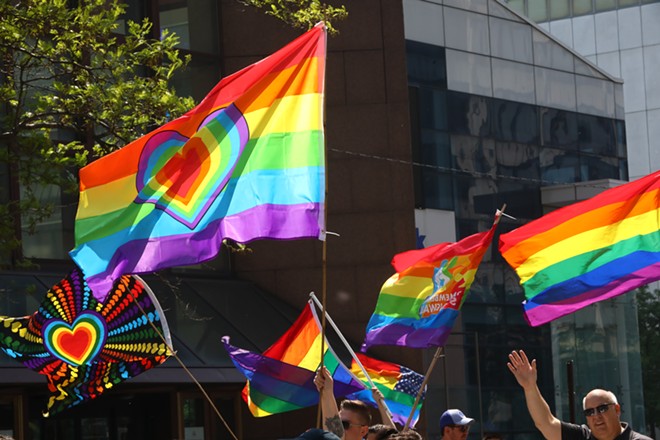
Pride in the CLE 2023
Kent State University’s College of Public Health and more than 120 local organizations have launched a LGBTQ+ community needs assessment for the greater Cleveland area. People 12 years and older who identify either with marginalized sexual orientations or gender identities, like lesbian, gay, bisexual, transgender, queer or questioning, or as allies to the LGBTQ+ community, are invited to fill out a confidential survey on the assessment’s website.
“The survey’s about 30 minutes and it’s really just kind of trying to understand the experiences of the LGBTQ+ community here in greater Cleveland,” said Jehlani White, a public health graduate student working on the assessment.
Greater Cleveland is considered Cuyahoga, Geauga, Lake and Lorain county in the assessment, but participants don’t need to live in the designated counties. The survey is open to those who rely on the greater Cleveland area for healthcare, social services, employment, education, religion or spirituality, recreation or other community resources.
The College of Public Health released a community report and recommendations last year analyzing responses to an Akron area LGBTQ+ community needs assessment of Summit, Stark, Portage and Medina County. According to White, the college plans to create an assessment for the Youngstown area next.
“So, as a long-term goal, we’re really hoping to get this 12-county representation of LGBTQ+ community from Akron, Cleveland and Youngstown,” White said. “And really, we want to bring the information back to the community.”
Surveys for the Cleveland assessment cover topics like health, safety, housing, nutrition, religion, employment and more. The assessment opened on June 3, the day of Pride in the CLE, and will close in February of 2024. Creators will then use the information to create a report and share findings with community partners like the Cleveland Foundation and the LGBT Community Center of Greater Cleveland.
“Once we go through the analyzing phase, we really want to present this information, give it back to our community partners we worked with…that want to use this data to figure out what type of programming they want to do, or what’s needed or anything in their realm of work they can do to help the LGBTQ community,” said White.
Community needs assessments can play an important role in helping underserved and marginalized communities by both identifying and documenting the greatest areas of need.
“For a lot of work, especially in this community, you need grants, you need funding. And with that, like you’ve got to have the evidence to show that this work or this program or this resource is needed,” White said. “So we want to do our part as researchers to really figure out this and then bring it back and hopefully, this data can spark those conversations and different decision making initiatives and things like that.”
Subscribe to Cleveland Scene newsletters.
Follow us: Apple News | Google News | NewsBreak | Reddit | Instagram | Facebook | Twitter | Or sign up for our RSS Feed
This post was originally published on this site be sure to check out more of their content.






